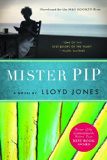Personally, I really like this change. The best way to get the committee to discuss a book was to nominate it-- but what if, after discussion, you realize that a book is seriously flawed? Then it still goes on the list! (And there is an ALA seal that long-list titles can use.) I know I was hesitant to nominate a title because I was afraid of accidentally putting an unworthy title on the list. The freedom in knowing that it could get taken off the list if it didn't hold up to group scrutiny was useful cover!
Anyway, I've been covering the long list since the list was made public this winter. This is the final title from the list...
 Charles Dickens and the Street Children of London Andrea Warren
Charles Dickens and the Street Children of London Andrea WarrenThis biography of Dickens ties his life story in with the plots of his books, showing how his real-life experiences inspired his work. It especially focuses on his work with England's poor and disenfranchised, showing how he used his wealth and fame to help and draw attention to the major social issues of the day.
I think this book stands apart for a few reasons. For one, it's one of the best that I've read in fully describing what life was like for the poor of Victorian London. It does an excellent job of explaining what life was like in debtor's prison and the workhouses and why these institutions were to be avoided at all costs. One of the other reasons is that it does an excellent job of showing what a major celebrity Dickens was in his time and why his work was so important. It hink it also makes a good case for why Dickens is, and should be, read today and studied in school.
It's also heavily illustrated, using artwork from the time period to help convey the life of Dickens and the poor. Surprisingly, many of the pictures are colored-- a nice touch.
Overall a great book that will appeal to the Dickens fan sure, but will also turn many other readers into fans of Dickens.
Be sure to check out today's Nonfiction Monday roundup, over at Instantly Interruptible.
Also, as a reminder, please check out my other project, YA Reading List, where I post a themed and topical reading list every.single.day.
Book Provided by... the publisher, for award consideration
Links to Amazon are an affiliate link. You can help support Biblio File by purchasing any item (not just the one linked to!) through these links. Read my full disclosure statement.


